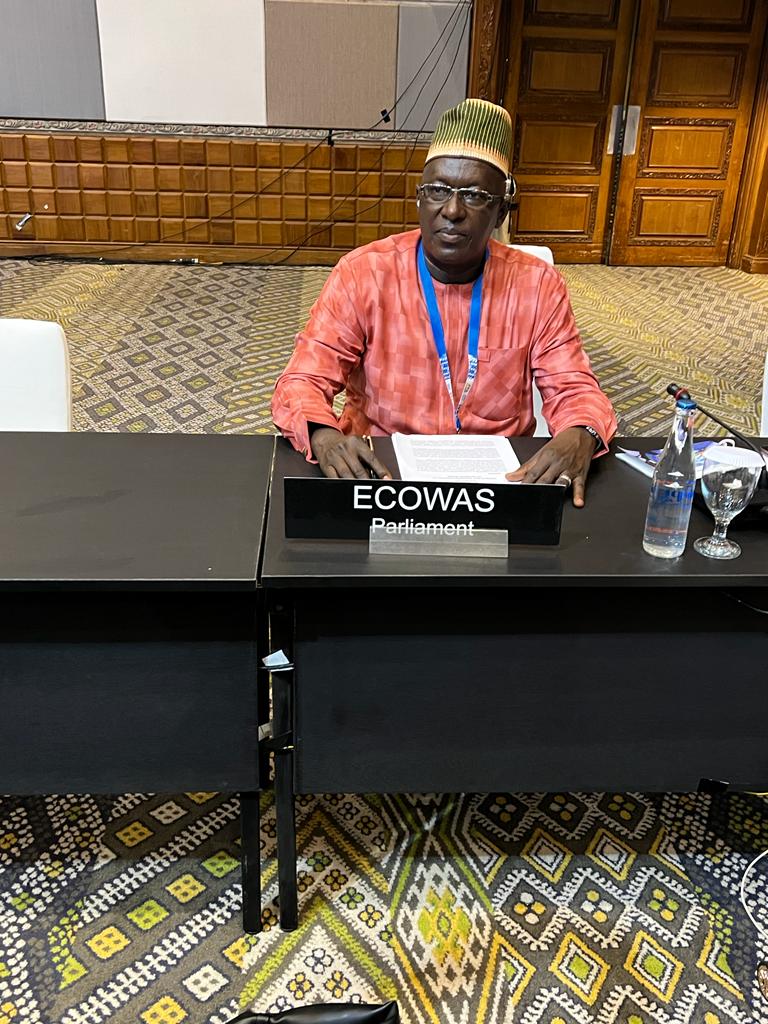By John Okeke
The Speaker, Parliament of the Economic Community of West African States (ECOWAS Parliament) Mohammed Tunis has given insights on why the world expedite actions towards tackling the climate change ravaging the earth.
The speaker who described Climate change as a huge health challenge with the potential to threaten the existence of life on earth called on all world’s parliament members to offer support by way of budgetary provisions in response to growing evidence of the impact of climate change on people’s health.
The Speaker, Sidie Tunis made the call at the 144th Inter-Parliamentary Union (IPU) Assembly – 20-24 March 2022 in Indonesia’s resort island of Bali.
“Members of Parliament should place more emphasis on the environment, through the various interventions they carry-out in their countries and constituencies. They should not only focus on areas like agriculture, education, health, and other infrastructural development issues. Rather, there should be mainstreaming of climate change in all our national budgets.
“Each sector of the economy should incorporate this phenomenon in its budget planning process. Furthermore, there should be national policies on climate change and Members of Parliament should be provided with adequate knowledge on adaptation and mitigation measures,” Tunis advised.
The ECOParl Speaker reminisced about experiences in the ECOWAS region where many countries had severe droughts, deforestation, desertification, flooding, coastal erosion, disease outbreaks, famine and food shortages to contend with because of climate change.
He said the aforementioned challenges were mitigated courtesy of the ECOWAS Commission, with the full participation of the ECOWAS Parliament, and other stakeholders by drawing-up a strategic programme for reducing vulnerability to climate change in West Africa.
“The ECOWAS Commission expects Members of Parliament to be proactive and support the climate change programme through sensitization campaigns on the use of renewable energy, alternative sources of charcoal and wood consumption across the region and the formulation of laws to mitigate the negative effect of climate change.
“It is worth mentioning that, because treaty negotiations are an executive action, Members of Parliament are generally not involved. Upon conclusion of such negotiations, it is imperative that Members should be given adequate briefing on the objectives, background, content and expected outcomes of such agreements. This would foster their understanding and possible buy-in into the agreements. It would also ease ratification by the various Parliaments.”
He urged the World Legislators to take a leaf out of ECOWAS Parliament’s book by setting up a machinery which guarantees the incorporation of climate change in their budgetary processes.
“One of the Standing Committees at the ECOWAS Parliament is the Committee on Agriculture, Environment and Natural Resources. To promote synergy, this Committee works closely with the Department of Agriculture, and Environment, of the ECOWAS Commission on all policy and programme implementation issues on the Environment and Climate Change.
“I wish to recall some major accomplishments through the organisation of delocalised Committee meetings on climate change. Some of the recommendations of these meetings such as ensuring that substantial budgetary allocations are made and climate change issues mainstreamed in national budgets of member states were adopted,” Tunis said.


